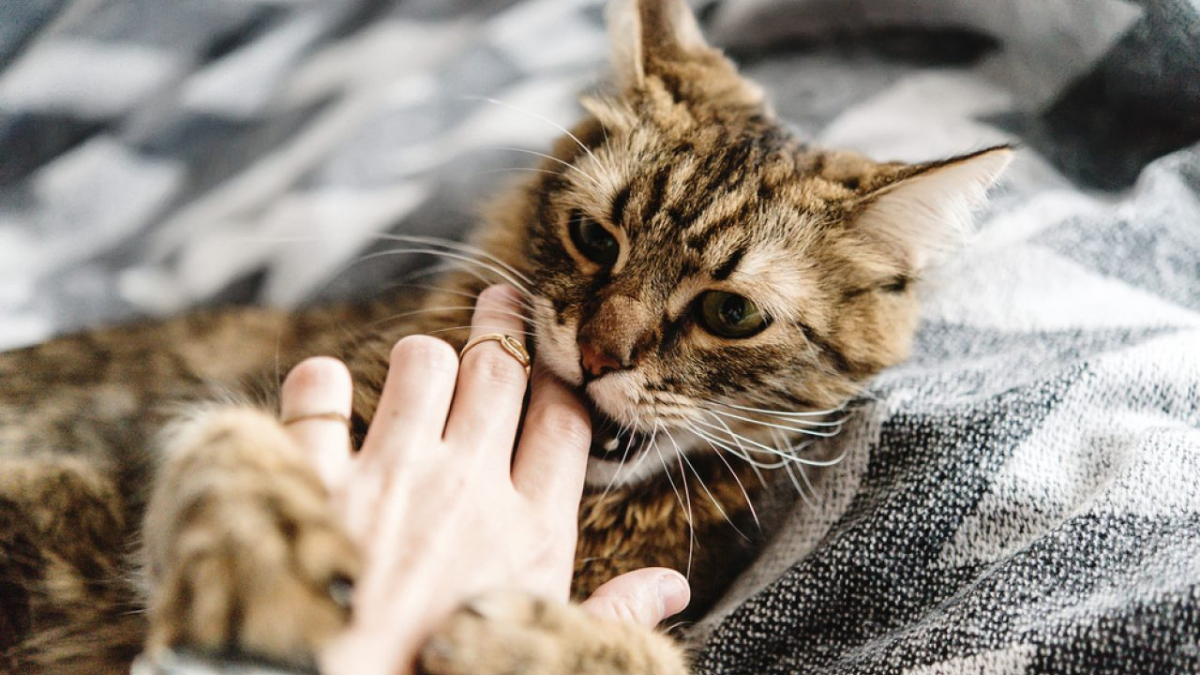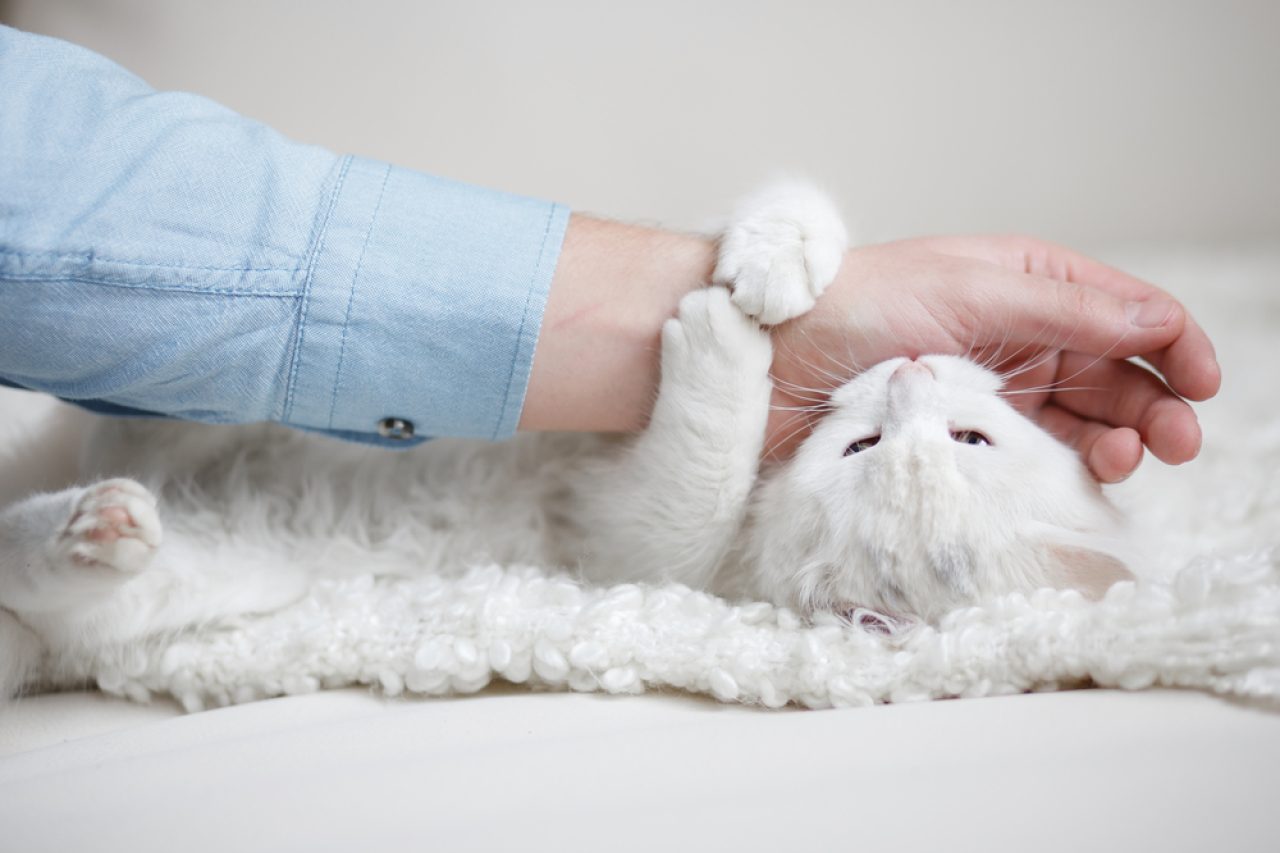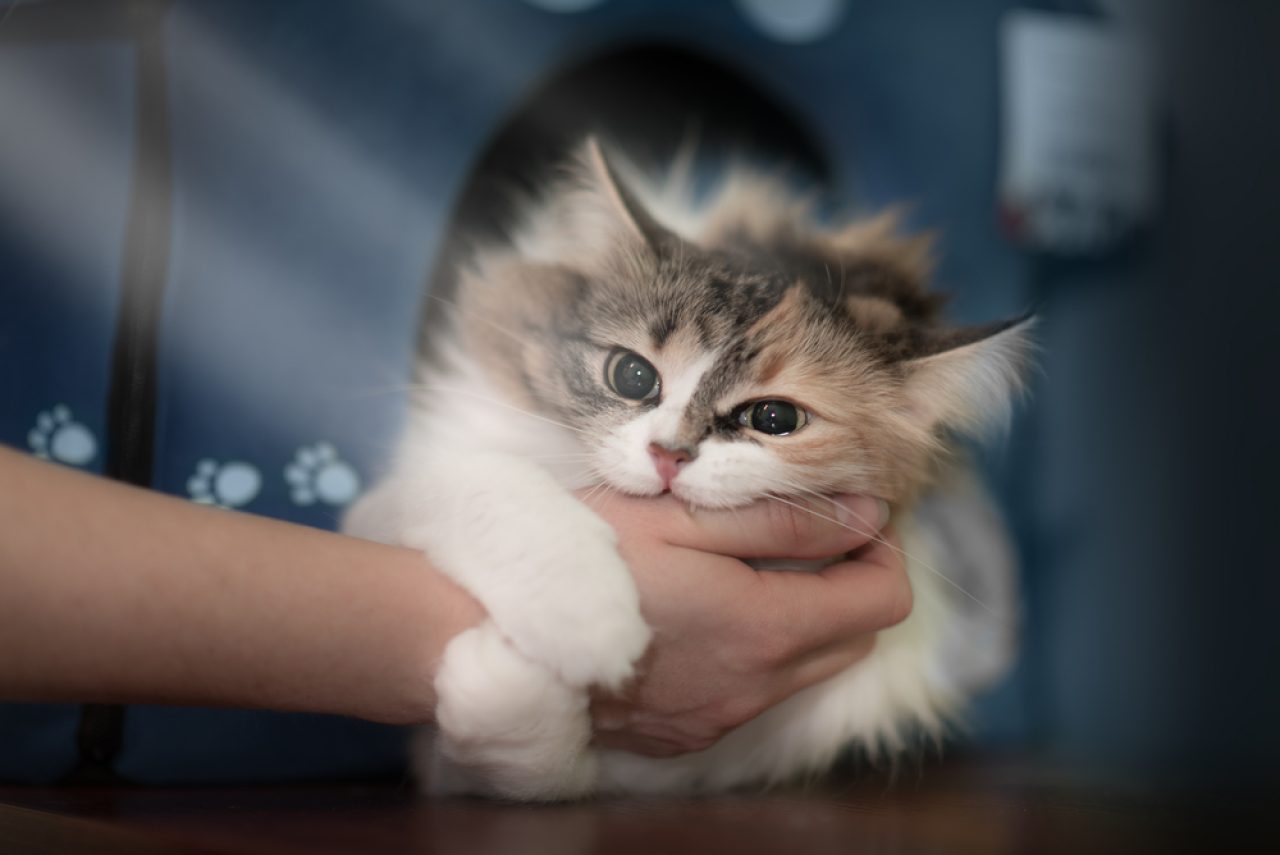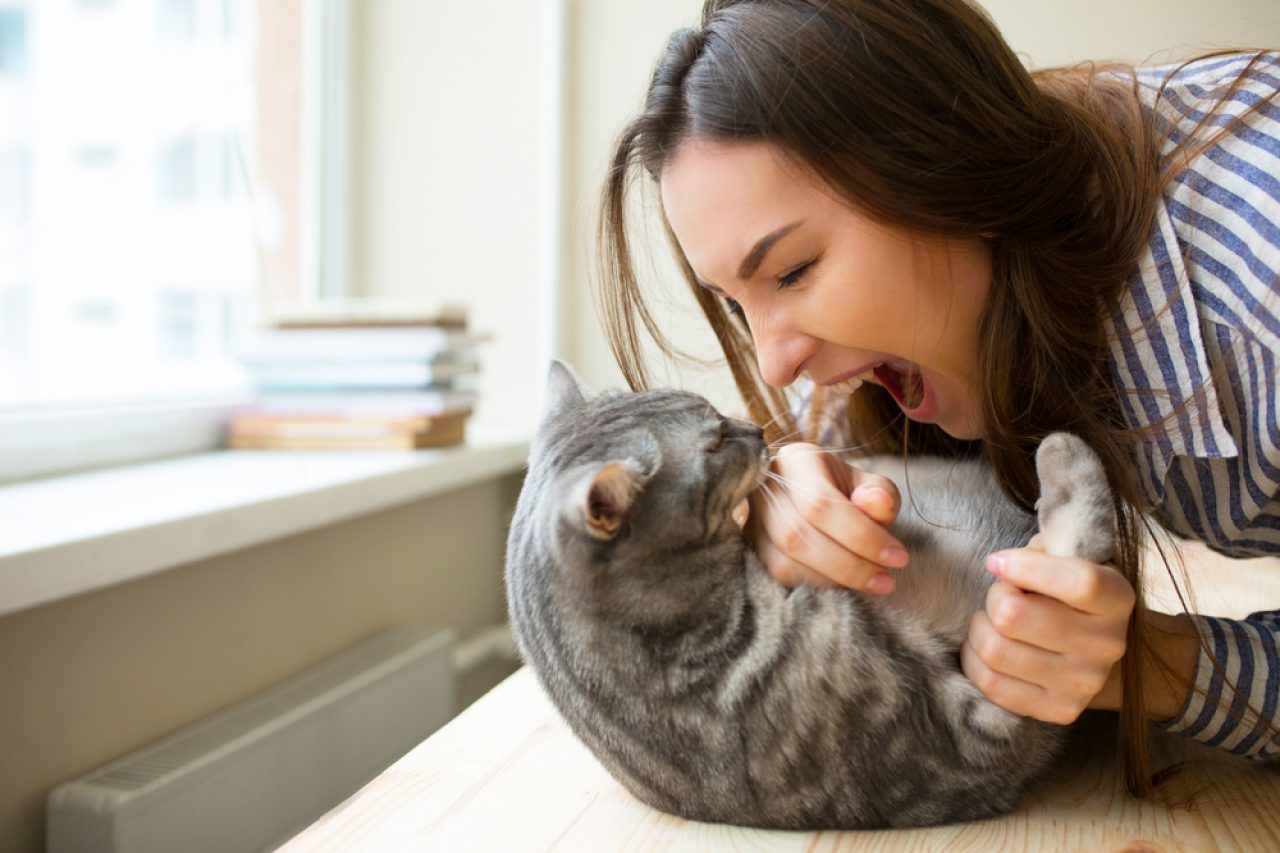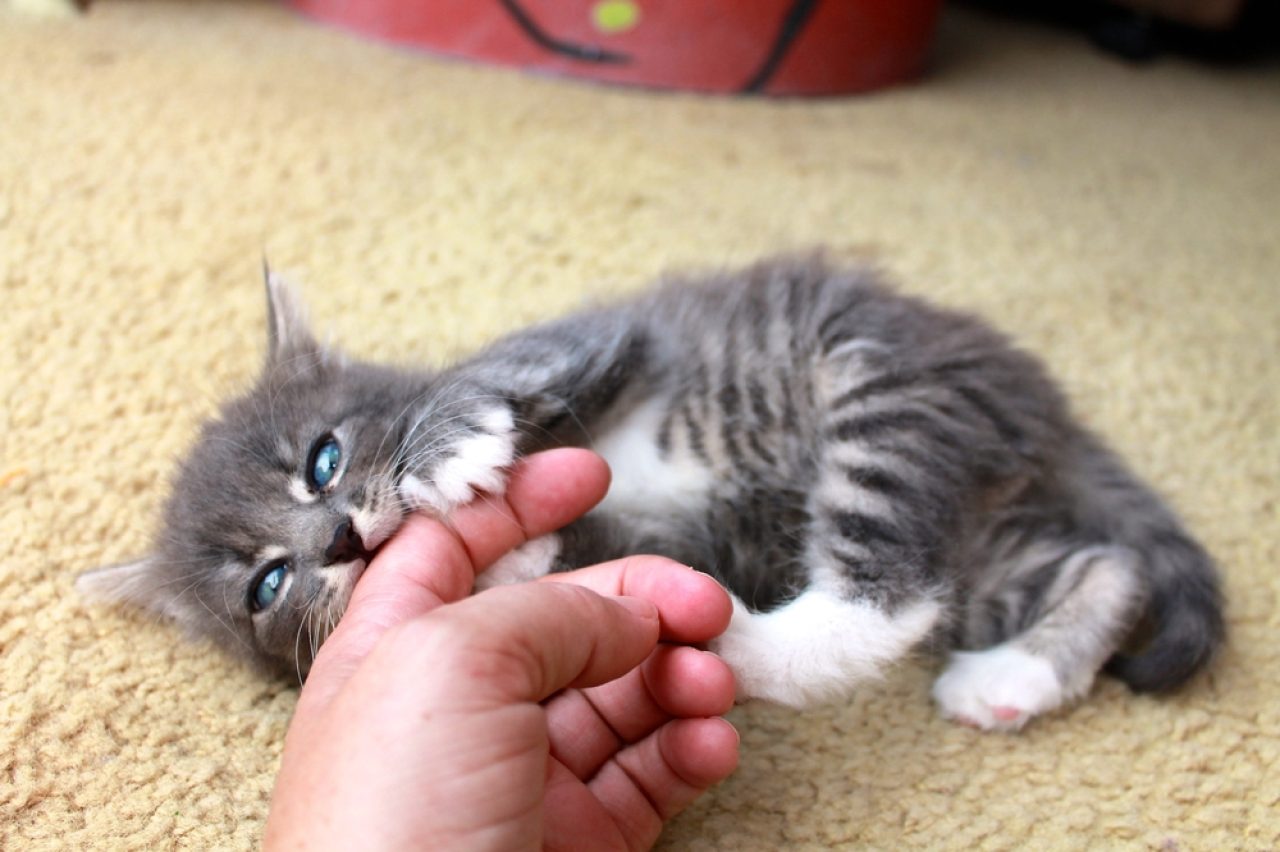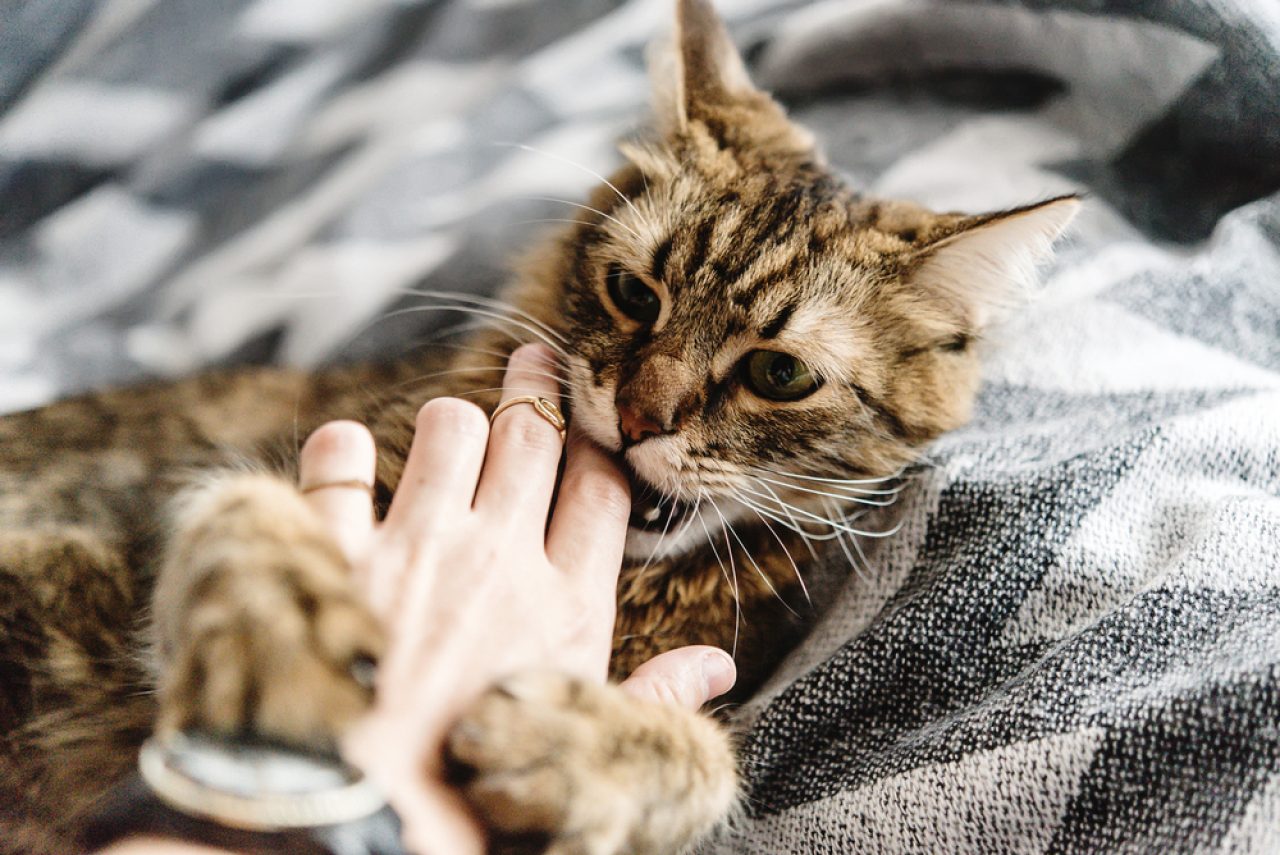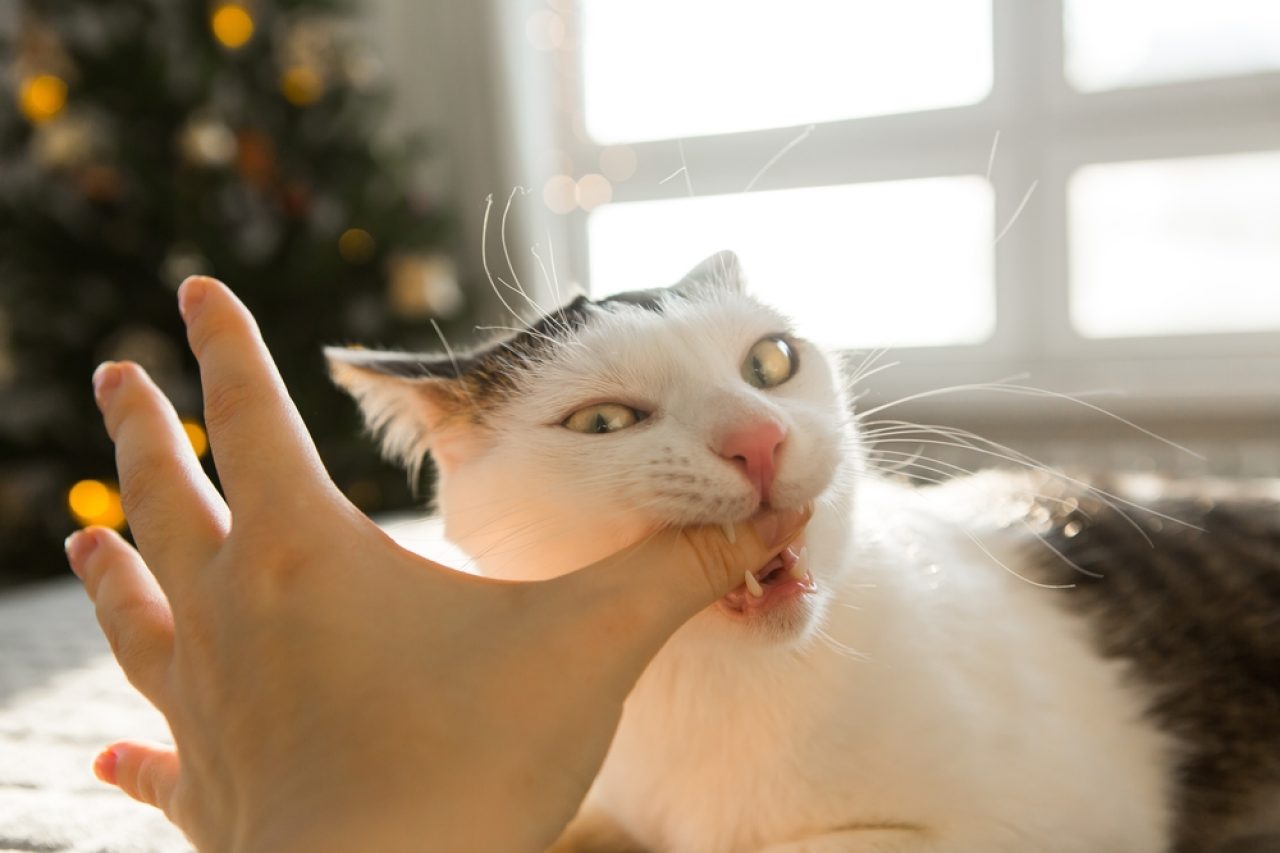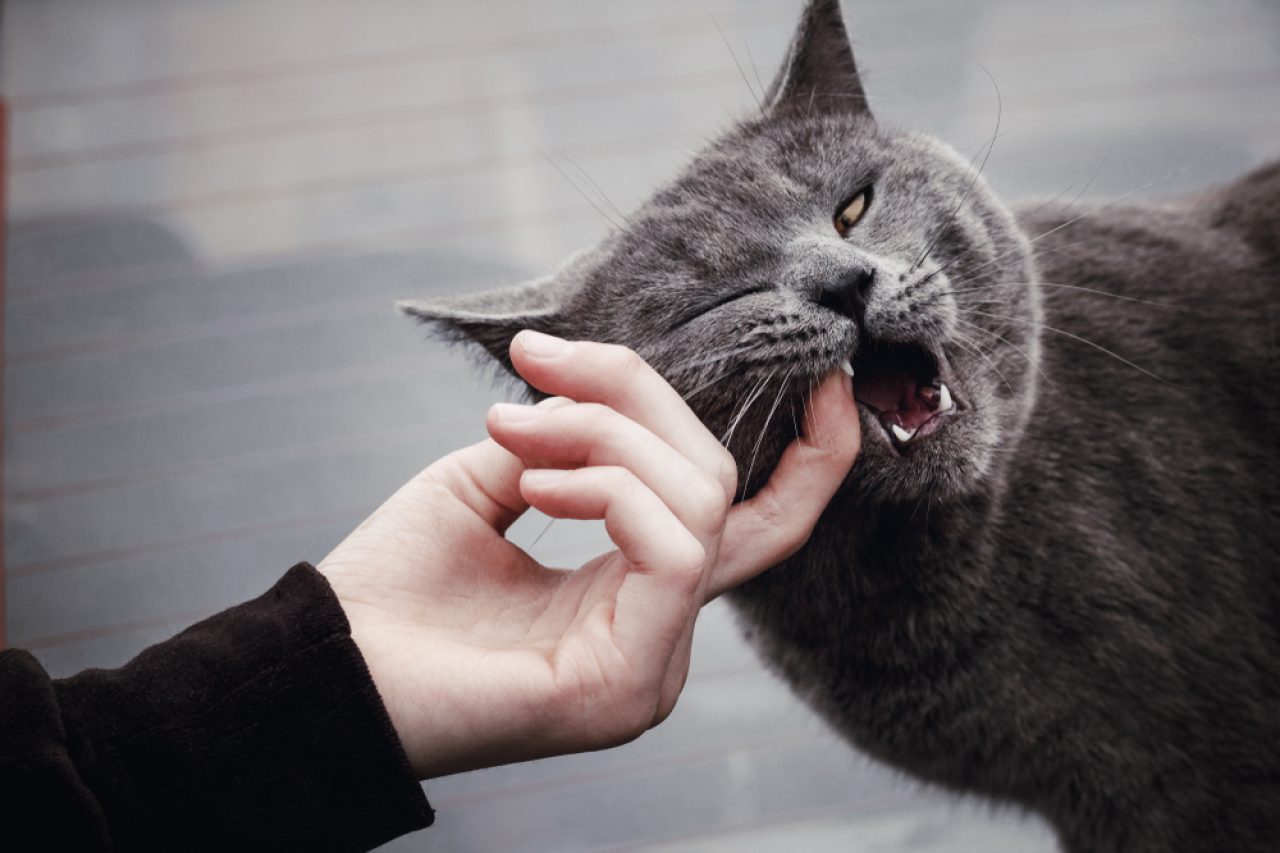📖 Table of Content:
Love sometimes hurts. It gets confusing, there are a lot of mixed signals and hot and cold behavior. No, we’re not talking about romantic relationships – we’re here to deal with the one you have with your cat. If you’re wondering, “Why do cats purr and then bite you?” then we assume your fluff broke your loving heart.
Every cat owner wishes they could read their fuzzball’s mind. Cats are not the easiest species to understand and they’re the epitome of mixed signals. One moment they’re softly purring in your lap, the next, their small teeth are digging into your hand.
Don’t worry – you’re probably not doing anything wrong. Cats’ purrs and bites can mean different things, and as pet parents, it’s our duty to learn what they mean. Our feline friends can’t speak English, unfortunately, so they have to use any way possible to communicate with us.
Whether it’s a sign of love or annoyance, cats purring then biting you means she’s trying to tell you something. If you’d like to understand your feline bestie better, let’s see what she has been trying to let you know.
1. Love bites as a sign of affection
When you ask the question, “Why do cats purr and then bite you”, the most common answer you’ll get from people is that those are little love bites. And they’re probably not wrong. In nature, cats give each other “love bites” as a sign of affection, and it’s likely that your cat is showing you some love too.
Love biting might be something your cat learned when she was a kitten and it stayed with her. As kittens, cats often used their teeth during playtime, so she’s letting you know she’s in a playful mood and loving the attention.
In the case of love bites, your cuddle buddy’s teeth won’t actually break your skin. In fact, she’ll probably softly nip your hand and it won’t hurt at all. She can’t pet you back, so she’ll use her teeth to give some of that love back to you.
If this happens – you’re doing great, but still, be careful. Although it can be a sign that your cat is enjoying it, it can also be a sign that whatever she enjoyed might be getting too much for her. Take it as her saying ”Yes, you’re doing well, human, maybe a bit too well…”
When this occurs, the best advice we can give you is to slowly back down. Yes, she’s enjoying it now, but in no time, it might be too much for her. So take it easy, start petting her less and less intensely until you stop completely. Better safe than sorry – and it will help you better understand what your fluff enjoys.
2. Purring is sometimes a warning
It’s now common knowledge that cats purr when they’re happy and content, but is that always the case? In reality, our feline companions purr for many different reasons, and it’s important to learn how to distinguish them. This is one of the main ways they communicate with us, so make sure you understand.
Many purrs mean many different things. For example, your cat might be letting you know that she’s under stress and trying to calm herself down. It’s been proven that cat’s purrs have healing frequencies, so it’s a way for them to wind down.
If a new person comes into your cat’s comfort zone, she might start purring as a territorial mechanism, just like dogs growl. They’re territorial and possessive – and they’ll let you know, so you better not misunderstand their warning signs.
There’s a reason why cats were labeled as mysterious. They’re not trying to trick or freckle you – they’re trying to be understood. Figuring out their behavior based on human rules and customs is what causes all the cat-fusion among the owners.
Purring can be a sign of content, but there’s so much more that could be going on. Don’t be surprised if your cat purrs and then suddenly bites you – but try to understand what she was trying to tell you all along. Purring speaks volumes, you just have to pay attention to it more – and you’re on the right track to do so.
3. Overstimulation is where they draw the line
Another common reason why cats purr and then bite you is that they’re overstimulated. We get it, you want to let your kitty know she’s loved and appreciated, and the best way to do that is by petting her. Sometimes, however, it can all get a bit too much for our cuddly companions.
Some believe that too much stroking creates little electric shocks, which causes your fuzzball to react. The only way they can stop us from doing what we’re doing is by lashing out and digging their teeth into our skin.
To avoid this, try changing how and where you pet them – your cuddle buddy will definitely enjoy it more. Since your cat purrs as a way to calm herself down, you probably won’t notice when she stops enjoying it until she bites you.
The good news is – there are some signs of overstimulation so you don’t have to rely on purring alone. Once the petting gets too much, your floof’s ears will go flat and she’ll start swinging her tail. Another thing to pay attention to is her body – if she’s tense, it’s probably a good time to stop.
Arching their back, being vocal, and being restless – they’re all good indicators that your fluff is getting overstimulated. No matter what you do, your cat will eventually start getting annoyed by it, so don’t beat yourself down if she does. Next time, just go a little easier on her.
4. You gotta work on your petting technique
All cats like petting. They absolutely live for it. You just have to understand their petting preferences – and those are different from cat to cat. Try mixing where you pet your ball of fluff and see what she likes. They’re drama queens, so they’ll definitely let you know when you find the spot they hate.
Some cats like when you rub their bellies while some absolutely hate it. If your cat purrs and then bites you, it could be because she wants you to change the petting location a bit. Try stroking her head, behind her ear, or under her neck. If you’re feeling brave – try rubbing her belly and see if she enjoys it.
Just like humans, cats have different personalities and preferences. What your friend’s cat loves, your feline buddy might hate. Don’t rush it when it comes to getting to know your cat. It might take a lot of patience and a few teeth in your skin from time to time, but you’ll both enjoy it in the end.
5. Your fluff might be in pain
No one wants to hear this about their loving feline friend but, unfortunately, sometimes cats purr and then bite you because they’re in pain. Although it can be because their fur traps static electricity, it can also be something more serious, which is why it’s important to pay attention to it.
When it comes to petting older kitties, you should be extra cautious. Their joints or certain body parts are usually sore, so it’s important to go gently on them and be mindful of their body language.
If an older cat purrs and then bites you – don’t take it personally. It’s their natural reaction and they’re trying to make you stop. Just like humans scream, cats bite, so try to understand that this is their way of letting you know something’s wrong.
Although pain is inevitable and it comes with age, it can also be a sign that your cat has some underlying health issues you weren’t aware of before. It’s important to note these things and consult a vet – it could help your kitty live a long and healthy life.
6. Biting as a sign of an underlying health issue
Petting is a good way to check your cat’s body for anything that you might find unusual. Whether it’s a lump or your cat bites you when you pet a certain body part – it could be an indicator of something serious.
If it happens once – you probably shouldn’t be worried. However, if it becomes a regular thing, you should definitely take it seriously. Cats purr to make themselves feel better, and when they’re sick they’ll probably bite you to let you know they don’t want you to bother them.
Keep in mind that, just like humans, cats can feel depressed at times as well. Maybe your feline friend has no physical health issues, but she might need a bit of a change in her environment. This will make your fluff feel sensitive and annoyed, so make sure to go gently with her.
Next time you ask yourself, “Why do cats purr and then bite you”, think about how your cat’s been acting lately. Has she been under the weather, eating less, or changed her behavior in any way? Has her fur changed? These things could mean your cat’s getting ill, so it’s best to pay a visit to the vet right away.
7. It’s in their wild nature
Sometimes we spend so much time with our cats that we forget that they have a wild side, too. In nature, cats nip and bite and fight all the time, and if they seem docile and sweet it’s because they love you and don’t want to hurt you.
If your cat purrs and then bites you – it’s completely normal. It’s in her nature and it’s bound to happen sometimes. When they nip you without breaking your skin, that’s them showing you respect. Next time, instead of worrying, pat yourself on the back for being a good pet parent.
There are many instances when cats use their teeth in nature. Mama kitty will bite her babies behind their necks and carry them around. A good feline mom doesn’t hate her kittens, so why should biting mean she hates you?
On top of that, cats bite a lot when they play – and it’s also something that they carry in their blood. Your kitty will purr and dance around and bite you, all because she’s having a good time. Don’t overthink it and relax – even if it means you’ll get bitten from time to time.
